
PREV ARTICLE
NEXT ARTICLE
FULL ISSUE
PREV FULL ISSUE
E.T. AND THE ANCIENT PERSIAN DARICS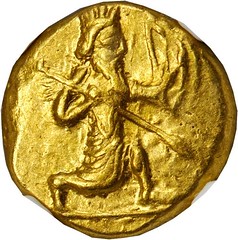 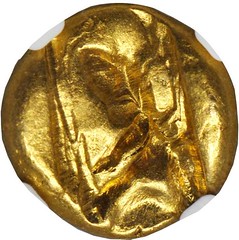 Last week we discussed an ancient Persian coin with a design element that could be seen as depicting a alien being, as in the title character from the movie, "E.T., The
Extra-Terrestrial". I asked what the design element was supported to represent. Mark Verbeck kindly provided this response illustrated with images from the archive of CNG, Lancaster, PA. Thanks!
-Editor
The reverses on ancient Persian darics do not bear a type of any sort. The apparent patterns within the deep incuse area are merely the impression from the punch or similar tool used to drive the coinage metal into the anvil die. Here is a reverse that might appear to represent a female facing right with a scarf around her neck. 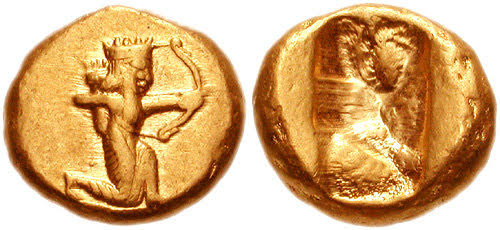 Another might seem to show the head and long neck of the Loch Ness Monster. Similar marks appear on several coins in the archive. 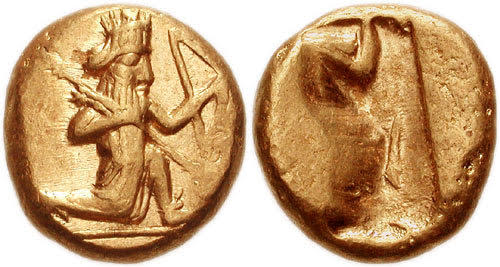 The early coins of Aegina, often considered the first struck in Europe, are not a great deal more sophisticated. The reverses bear an incuse square divided into segments. 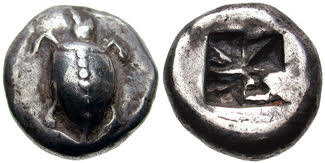 The corresponding silver coins (siglos, plural sigloi) from this era are abundant, though style and artistry vary considerably. This is an attractive one, once again from the CNG archive. 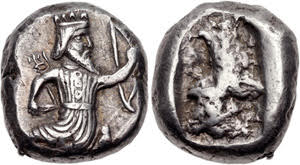 This exercise reminded me of travel in the Rocky Mountains. After a few days you're saying, "It really does look like a Lizard Head." To read the earlier E-Sylum article, see:
Wayne Homren, Editor The Numismatic Bibliomania Society is a non-profit organization promoting numismatic literature. See our web site at coinbooks.org. To submit items for publication in The E-Sylum, write to the Editor at this address: whomren@gmail.com To subscribe go to: https://my.binhost.com/lists/listinfo/esylum All Rights Reserved. NBS Home Page Contact the NBS webmaster 
|